第29章
The proud man, then, is an extreme in respect of the greatness of his claims, but a mean in respect of the rightness of them; for he claims what is accordance with his merits, while the others go to excess or fall short.
If, then, he deserves and claims great things, and above all the great things, he will be concerned with one thing in particular.
Desert is relative to external goods; and the greatest of these, we should say, is that which we render to the gods, and which people of position most aim at, and which is the prize appointed for the noblest deeds; and this is honour; that is surely the greatest of external goods. Honours and dishonours, therefore, are the objects with respect to which the proud man is as he should be. And even apart from argument it is with honour that proud men appear to be concerned;for it is honour that they chiefly claim, but in accordance with their deserts. The unduly humble man falls short both in comparison with his own merits and in comparison with the proud man's claims. The vain man goes to excess in comparison with his own merits, but does not exceed the proud man's claims.
Now the proud man, since he deserves most, must be good in the highest degree; for the better man always deserves more, and the best man most. Therefore the truly proud man must be good. And greatness in every virtue would seem to be characteristic of a proud man. And it would be most unbecoming for a proud man to fly from danger, swinging his arms by his sides, or to wrong another; for to what end should he do disgraceful acts, he to whom nothing is great?
If we consider him point by point we shall see the utter absurdity of a proud man who is not good. Nor, again, would he be worthy of honour if he were bad; for honour is the prize of virtue, and it is to the good that it is rendered. Pride, then, seems to be a sort of crown of the virtues; for it makes them greater, and it is not found without them. Therefore it is hard to be truly proud; for it is impossible without nobility and goodness of character. It is chiefly with honours and dishonours, then, that the proud man is concerned; and at honours that are great and conferred by good men he will be moderately Pleased, thinking that he is coming by his own or even less than his own; for there can be no honour that is worthy of perfect virtue, yet he will at any rate accept it since they have nothing greater to bestow on him; but honour from casual people and on trifling grounds he will utterly despise, since it is not this that he deserves, and dishonour too, since in his case it cannot be just. In the first place, then, as has been said, the proud man is concerned with honours; yet he will also bear himself with moderation towards wealth and power and all good or evil fortune, whatever may befall him, and will be neither over-joyed by good fortune nor over-pained by evil. For not even towards honour does he bear himself as if it were a very great thing. Power and wealth are desirable for the sake of honour (at least those who have them wish to get honour by means of them); and for him to whom even honour is a little thing the others must be so too. Hence proud men are thought to be disdainful.
The goods of fortune also are thought to contribute towards pride.
For men who are well-born are thought worthy of honour, and so are those who enjoy power or wealth; for they are in a superior position, and everything that has a superiority in something good is held in greater honour. Hence even such things make men prouder; for they are honoured by some for having them; but in truth the good man alone is to be honoured; he, however, who has both advantages is thought the more worthy of honour. But those who without virtue have such goods are neither justified in making great claims nor entitled to the name of 'proud'; for these things imply perfect virtue.
Disdainful and insolent, however, even those who have such goods become. For without virtue it is not easy to bear gracefully the goods of fortune; and, being unable to bear them, and thinking themselves superior to others, they despise others and themselves do what they please. They imitate the proud man without being like him, and this they do where they can; so they do not act virtuously, but they do despise others. For the proud man despises justly (since he thinks truly), but the many do so at random.